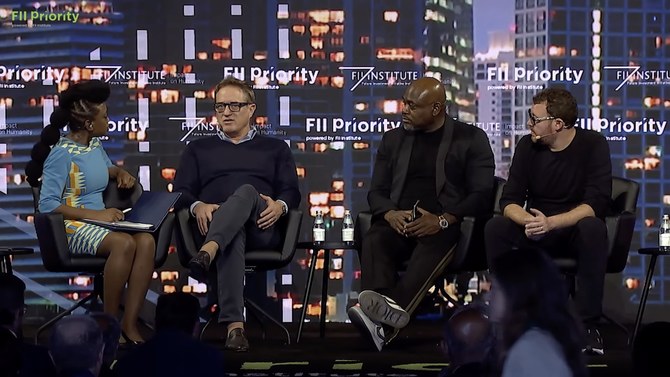
- ARAB NEWS
- 05 May 2024

MIAMI: Leaders in Saudi Arabia and Miami share common ground in their efforts to foster environments conducive to growth and talent, experts highlighted at the FII Priority conference in Miami on Friday.
Over the past few years, both have prioritized initiatives aimed at improving living standards for their residents, focusing on socio-economic policies that promote diversity and inclusivity.
“There are so many parallels between what’s going on here (in Miami) and what’s going on there (Saudi Arabia),” said Jeff Zalaznick, restaurateur and managing partner of hospitality company Major Food Group.
During a session titled “The special sauce: what is the recipe for a vibrant city?” he added: “Both are fostering environments where people can grow (and) excel in their fields. They want to attract talent.”
Zalaznick noted that both regions strike a balance between cultivating diversity and talent locally while also attracting the best from around the world, fostering their potential across various domains such as sports, music, and culinary arts.
Aligned with its Vision 2030, Saudi Arabia has undertaken significant policy reforms, placing diversity and inclusion at the forefront of its development agenda.
This shift has been especially pivotal for the Kingdom’s youthful demographic, as they aspire to leverage this momentum and carve out their niches in various industries.
“(When you make) young people feel optimistic about what they can do, you basically are writing the future,” said Steve Stoute, CEO of marketing agency Translation and music label UnitedMasters.
“I do believe that this idea of multiculturalism, of embracing emerging subcultures and helping enforce that, are (fundamental) ingredients that this city gets and (only) a couple other cities get really well.”
He emphasised that places lacking diversity and inclusive support systems miss out on attracting the brightest young talent, as they fail to cultivate the dynamic and vibrant environments necessary for growth and innovation.
Renowned as a haven for retirees, Miami has undergone a transformation in recent years, enticing a younger demographic with a blend of job prospects and reduced tax obligations.
Similarly, Saudi Arabia has embarked on a campaign to redefine itself as not just a regional hub, but a global magnet for young talent.
With its population surpassing 32 million, as per a 2022 census by the General Authority for Statistics, Saudi Arabia boasts a youthful majority, with those under the age of 30 constituting 63 percent of the total.
Drawing parallels between these two “renaissances,” Zalaznick noted the evolving criteria for vibrant cities and the changing preferences of city dwellers.
He highlighted the growing importance of cultural dynamism and multiculturalism in city selection, particularly for companies seeking diverse talent pools and innovative environments.
“It’s about young people,” said Tom Garfinkel, vice chairman, president and CEO of the Miami Dolphins and Hard Rock Stadium and managing partner of the Formula One Miami Grand Prix.
“We have to attract young people, we have to have cultural dynamics where young people can afford to live, where business opportunities exist, where it’s easy to start businesses and to create.
“The talent goes to the city that attracts, that has the culture that attracts young talent, and the companies go there and not the other way around,” he concluded.